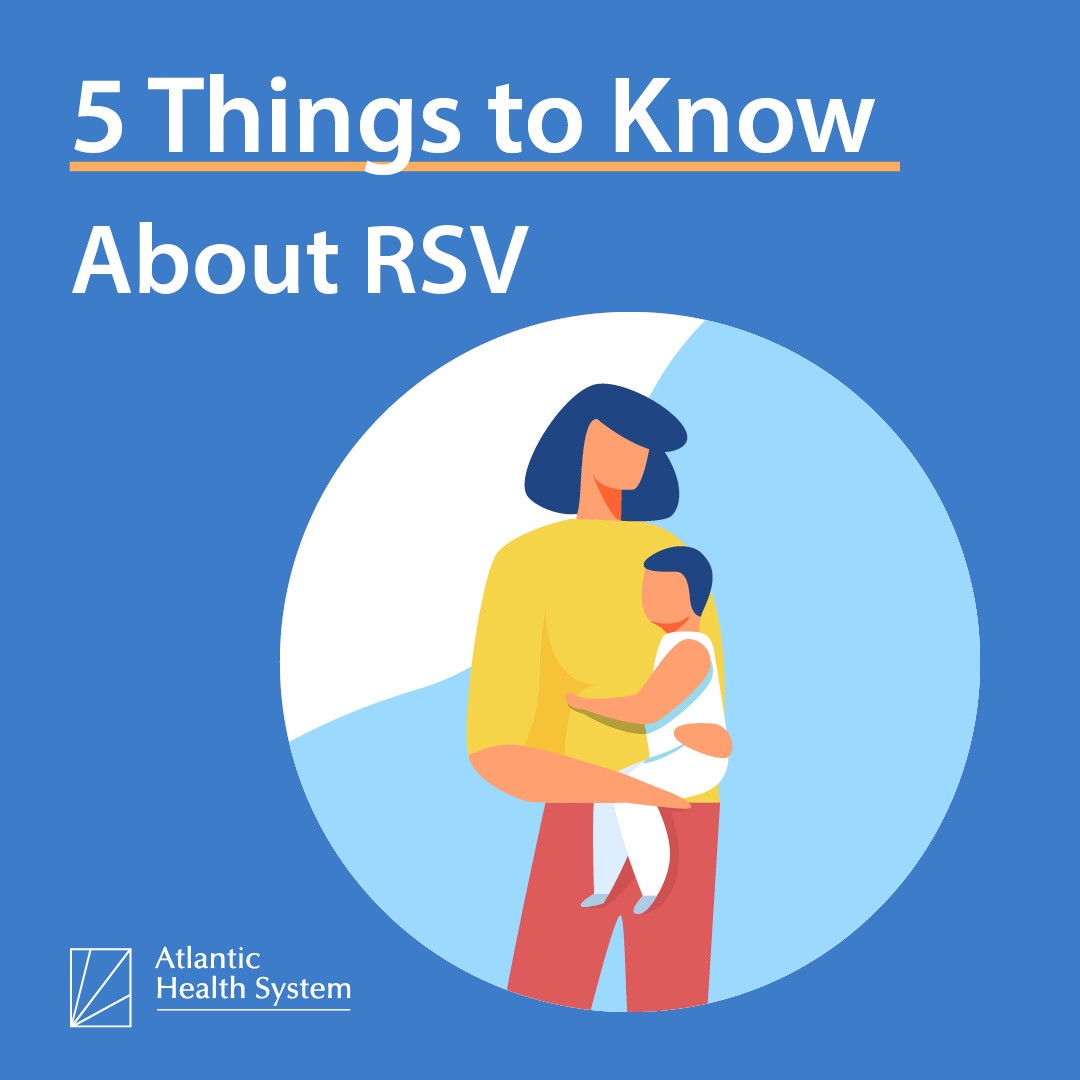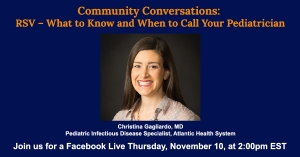
The Centers for Disease Control and Prevention are reporting an increase in cases of respiratory syncytial virus (RSV) and RSV-associated emergency department visits and hospitalizations in multiple areas of the United States over the last few months. Emergency department wait times may be impacted as a result.
RSV is a common virus that typically leads to mild, cold-like symptoms in adults and older healthy children. However, RSV can be more serious in young babies, especially those in certain high-risk groups.






More About RSV
RSV spreads through tiny droplets that go into the air when a sick person blows their nose, coughs, or sneezes. It can spread quickly in crowded spaces. For this reason, it's important to keep children at home when they are sick to prevent the spread of illness, especially to vulnerable populations.
Symptoms can differ by age. Older children may experience cough, runny nose, low fever and other cold-like symptoms, while infants under age 1 may have more severe symptoms including difficulty breathing. Symptoms for young children can also include irritability, decreased activity or appetite, nasal flaring or wheezing. Learn more >
RSV is the most common cause of bronchiolitis (inflammation of the small airways in the lung) and pneumonia (infection of the lungs) in children younger than 1 year of age in the United States.
Call 911 if you or your child are experiencing a medical emergency, otherwise consult your physician or pediatrician.
Related Articles
Should Parents Expect a Tridemic?
As hospitals report an uptick in cases of COVID, the flu and respiratory syncytial virus (RSV), the United States may be facing a “tridemic.” That may be the last thing you want to hear, but our physician expert shares steps you can take to protect your family from these illnesses. Learn more >
Facebook Live: RSV In the Community
RSV and other seasonal viruses are spreading like wildfire. In to our next Facebook Live, a pediatric infectious disease specialist will answer questions about what symptoms to look for and when to bring your child to the doctor. Watch >
RSV: 9 Things Parents Should Know
How can you protect your children and your family from RSV? What steps do you take if your child gets it? How do you know when to see a doctor? Get the answers from an Atlantic Health physician expert. Learn more >
A Doctor Answers Your Questions About Rhinovirus and Enterovirus
It’s cold season and every cough and sniffle has parents wondering what their child is coming down with and how to handle it. Atlantic Health System doctors share everything parents need to know about rhinovirus and enterovirus and how to keep kids healthy. Learn more >
What Every Parent Needs to Know About the Flu this Season
It’s cold season and every cough and sniffle has parents wondering what their child is coming down with and how to handle it. Atlantic Health System doctors share everything parents need to know about rhinovirus and enterovirus and how to keep kids healthy. Learn more >




